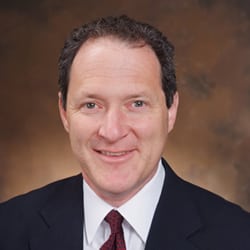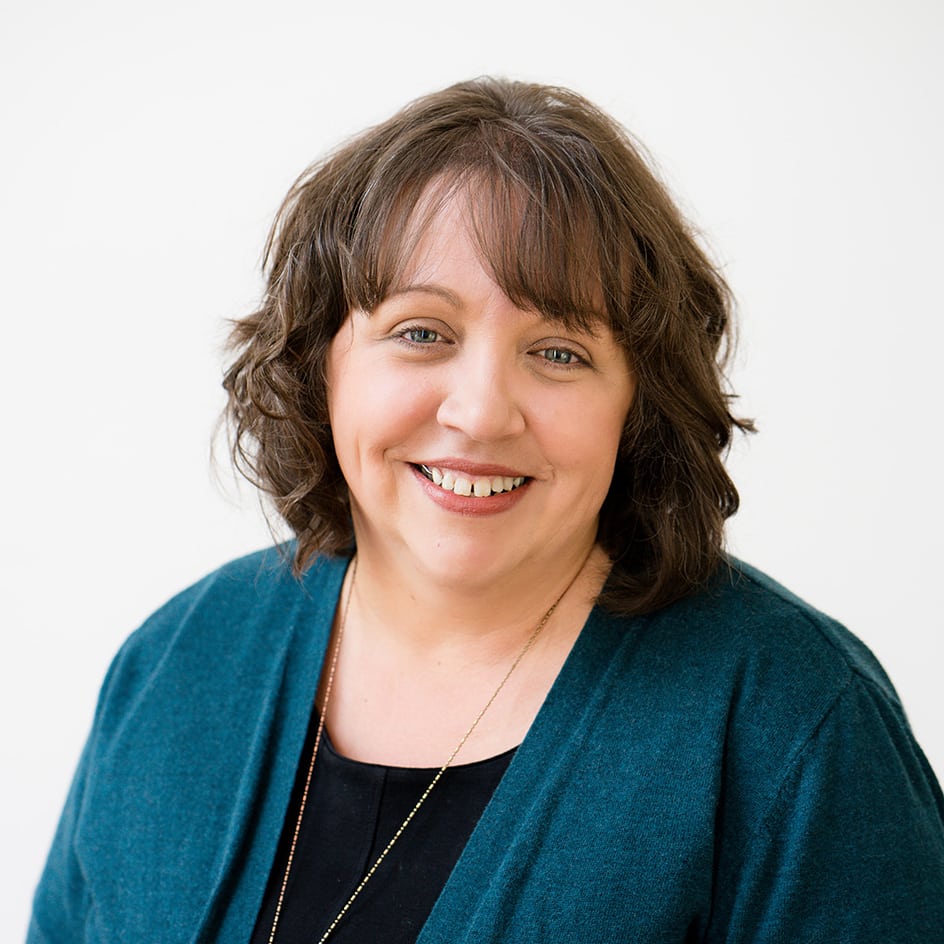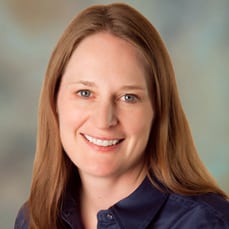Caring for your health after a loss
On the difficult journey of losing a baby, it is important to remember that there is a medical team wanting to help carry you through your loss. They want to help you heal both physically and emotionally after losing your baby. They want to help you succeed in growing your family. They care about you.
If you find that your current doctor is not a right fit for you and your circumstances at this time, know that there are many out there who you can and will support you. Talk with family and friends to see which doctors have helped them through their journey of miscarriage and loss. Advocate for yourself and find someone you feel comfortable caring for you on this journey. This is already an emotionally difficult time and you are worthy of the best care.
We’ve worked with doctors and nurses to gather some helpful and hopeful health information as you navigate this loss.
Healing and Hope
Caring for yourself after a miscarriage
“After a miscarriage happens the female body loses more blood than the normal menses.
Losing a baby is hard on the body and may take 2-4 weeks to fully express the excess tissue and blood from the uterus. For a women that has gone through a miscarriage, she will need to let her body rest – no intercourse for 2-6 weeks (depending on the bleeding), keep taking your prenatal vitamins, stay hydrated, and make sure to eat well.
The grieving process is completely different for every lady and a lot of this can depend on the gestational age of the loss. If you are not ready to speak to others about your loss kindly ask them to give you space. When ready, I suggest you reach out to a loved one or a close friend that may be able to help you get through the grieving process. Having a early pregnancy loss or even a late term pregnancy loss is always heartbreaking, but my best advice is to make sure you listen to your body and watch for signs of the anxiety/depression after a loss. Do not be afraid to contact your gynecology provider for advice, that is what our job is. We care for our patients!” – Raylene James, LPN, OB/GYN nurse for 7 years.
There is hope after a loss!
“When counseling patients with recurrent pregnancy loss, I try to stay positive and remind patients of the facts. The most common cause of first trimester miscarriage is a genetic issue within the embryo, not something wrong with the people conceiving. To me this means each pregnancy is a brand new opportunity! Research shows that even with multiple miscarriages there is always a chance of a healthy baby with the next conception. Most women with recurrent miscarriage go on to have their “rainbow baby” (hope after the storm)!
In the middle of struggling with miscarriage (especially more than one), it’s normal to feel hopeless but be an advocate for yourself and find medical providers that will listen and offer supportive care. You are your own best advocate so educate yourself and take good care of yourself on the journey. Best wishes!” – Dr. Lora Shahine MD FACOG, Physician, Pacific NW Fertility and IVF Specialists
Support from professionals who care about you

Frederick Frank, MD.
Salem, OR
Frederick Frank, MD. Dr Frank earned his undergraduate degree from Princeton University where he graduated Summa Cum Laude. He attended Stanford University School of Medicine where he graduated in 1998. He completed his training at The University of Virginia where he served as intern, resident and Chief Resident in Obstetrics and Gynecology. He joined Salem Clinic in 2002 and served as Chief of Obstetrics and Gynecology at Salem Hospital from 2010-2014.
“I’m so sorry.”
I’ve said it a thousand times, but it always hurts.
As an obstetrician and gynecologist, I get to deliver a steady stream of bad news. I tell women they have STDs, abnormal Pap smears and even cancer. Telling a women she has cancer isn’t fun but it’s fairly straightforward. We all understand cancer as a “tragedy”. We know (or think we do) how to treat people when tragedies befall them. We let them know that we hurt for them and have their backs, that we’re ready when they need us and in the background when they don’t.
Miscarriages don’t carry that type of gravity. Nobody tells the cancer patient “well at least you’ve had a good run.” Yet with a miscarriage we all think (and too many of us say) “well at least you have two healthy kids at home.”
I’ve come to think of miscarriages as Little Tragedies. Not big enough to grab everyone’s attention, yet often just as painful — something you don’t understand until it happens to you.
Part of the pain comes from extinguished hope: the dreams that began the moment the line turned blue. More of it, however, comes from failure. You feel like you failed. You failed your partner, yourself, and most of all, the fragile little person inside who depended on you.
But you didn’t cause this to happen. This was probably determined the second the wrong sperm met the wrong egg. You didn’t drink anything, eat anything or do anything to cause this. It’s not the fight you had last night, the hot tub you soaked in or the missed prenatal vitamin.
You’re not that powerful. You could have spent your entire pregnancy meditating, eating macrobiotic and listening to Enya and this still would have happened.
But I get it. Because I feel the failure too. I may know on some level that this was all inevitable and natural; that you will get pregnant again and eventually have a baby. But I also know that you trusted me with this magical process and I let you down.

Frederick Frank, MD.
Salem, OR
Frederick Frank, MD. Dr Frank earned his undergraduate degree from Princeton University where he graduated Summa Cum Laude. He attended Stanford University School of Medicine where he graduated in 1998. He completed his training at The University of Virginia where he served as intern, resident and Chief Resident in Obstetrics and Gynecology. He joined Salem Clinic in 2002 and served as Chief of Obstetrics and Gynecology at Salem Hospital from 2010-2014.
“I’m so sorry.”
I’ve said it a thousand times, but it always hurts.
As an obstetrician and gynecologist, I get to deliver a steady stream of bad news. I tell women they have STDs, abnormal Pap smears and even cancer. Telling a women she has cancer isn’t fun but it’s fairly straightforward. We all understand cancer as a “tragedy”. We know (or think we do) how to treat people when tragedies befall them. We let them know that we hurt for them and have their backs, that we’re ready when they need us and in the background when they don’t.
Miscarriages don’t carry that type of gravity. Nobody tells the cancer patient “well at least you’ve had a good run.” Yet with a miscarriage we all think (and too many of us say) “well at least you have two healthy kids at home.”
I’ve come to think of miscarriages as Little Tragedies. Not big enough to grab everyone’s attention, yet often just as painful — something you don’t understand until it happens to you.
Part of the pain comes from extinguished hope: the dreams that began the moment the line turned blue. More of it, however, comes from failure. You feel like you failed. You failed your partner, yourself, and most of all, the fragile little person inside who depended on you.
But you didn’t cause this to happen. This was probably determined the second the wrong sperm met the wrong egg. You didn’t drink anything, eat anything or do anything to cause this. It’s not the fight you had last night, the hot tub you soaked in or the missed prenatal vitamin.
You’re not that powerful. You could have spent your entire pregnancy meditating, eating macrobiotic and listening to Enya and this still would have happened.
But I get it. Because I feel the failure too. I may know on some level that this was all inevitable and natural; that you will get pregnant again and eventually have a baby. But I also know that you trusted me with this magical process and I let you down.

Annie Willems, Doula
Salem, OR
Annie Willems is the co-owner of PNW Doulas and a certified birth and postpartum doula who specializes in bereavement and pregnancy after loss.
“Loss is loss is loss.
Whether you lost your baby at just 5 weeks pregnant, 18 weeks pregnant, or after a full-term birth, your child died. And a lifetime of hopes, dreams, and plans died, too. You get to mourn and grieve your loss however you choose. And you get to do that for however long you choose.
Grief is hard on relationships. When two people are feeling intense pain (and most likely expressing it in very different ways), it can easily come between the two of you. Communication is hard when your heart is broken. Intimacy can become more complicated. The thoughts and questions in your mind can be isolating. All of these things have the potential of building a wedge between two people. Taking care of your relationship will not be easy right now. It will require more grace and patience than you knew was possible. But it’s worth it. Take time to check in with each other. Give permission to cry…or not to cry. Understand that the grief process might look like anger sometimes. Allow space for grieving together and for grieving separately.
One deep breath at a time.”

Annie Willems, Doula
Salem, OR
Annie Willems is the co-owner of PNW Doulas and a certified birth and postpartum doula who specializes in bereavement and pregnancy after loss.
“Loss is loss is loss.
Whether you lost your baby at just 5 weeks pregnant, 18 weeks pregnant, or after a full-term birth, your child died. And a lifetime of hopes, dreams, and plans died, too. You get to mourn and grieve your loss however you choose. And you get to do that for however long you choose.
Grief is hard on relationships. When two people are feeling intense pain (and most likely expressing it in very different ways), it can easily come between the two of you. Communication is hard when your heart is broken. Intimacy can become more complicated. The thoughts and questions in your mind can be isolating. All of these things have the potential of building a wedge between two people. Taking care of your relationship will not be easy right now. It will require more grace and patience than you knew was possible. But it’s worth it. Take time to check in with each other. Give permission to cry…or not to cry. Understand that the grief process might look like anger sometimes. Allow space for grieving together and for grieving separately.
One deep breath at a time.”

Lora Shahine, MD, FACOG
Seattle, WA
“Struggling to complete your family can feel isolating. We see magazines covered with movie star Moms, women in line at the grocery store with pregnant bellies, birth announcements and gender reveal parties on social media. When you’re trying to conceive, it can feel like everyone else has what you want. Miscarriage is more common than many people realize since 1 in 4 pregnancies end in miscarriage. Most people are not showing before the pregnancy ends and many women are encouraged to not share their pregnancies before the end of the first trimester, ‘Just in case.’
Just in case of what?
Just in case of miscarriage.
This adds to the stigma surrounding a common issue that many women deal with.
Part of the mission of Always in My Heart is to decrease that stigma – to make sure women know they are not alone, to educate, be a resource, and provide hope.
As the Director of the Center of Recurrent Pregnancy Loss at Pacific NW Fertility in Seattle, WA, I share this goal. By furthering the discussion around miscarriage, we can support, encourage, and help women be advocates for themselves.” – Lora Shahine, MD, FACOG is a board certified reproductive endocrinologist currently practicing at Pacific NW Fertility and IVF Specialists in Seattle.
Learn more http://lorashahine.com and connect @drlorashahine Twitter, Facebook, Instagram

Lora Shahine, MD, FACOG
Seattle, WA
“Struggling to complete your family can feel isolating. We see magazines covered with movie star Moms, women in line at the grocery store with pregnant bellies, birth announcements and gender reveal parties on social media. When you’re trying to conceive, it can feel like everyone else has what you want. Miscarriage is more common than many people realize since 1 in 4 pregnancies end in miscarriage. Most people are not showing before the pregnancy ends and many women are encouraged to not share their pregnancies before the end of the first trimester, ‘Just in case.’
Just in case of what?
Just in case of miscarriage.
This adds to the stigma surrounding a common issue that many women deal with.
Part of the mission of Always in My Heart is to decrease that stigma – to make sure women know they are not alone, to educate, be a resource, and provide hope.
As the Director of the Center of Recurrent Pregnancy Loss at Pacific NW Fertility in Seattle, WA, I share this goal. By furthering the discussion around miscarriage, we can support, encourage, and help women be advocates for themselves.” – Lora Shahine, MD, FACOG is a board certified reproductive endocrinologist currently practicing at Pacific NW Fertility and IVF Specialists in Seattle.
Learn more http://lorashahine.com and connect @drlorashahine Twitter, Facebook, Instagram
Online Resources
Physical recovery after a loss.
What to know about miscarriage and recovery.
What to know about stillbirth and recovery.
Emotional Healing after a stillbirth.
Books
Not Broken, An Approachable Guide to Miscarriage and Recurrent Pregnancy Loss. Lora Shahine, MD, FACOG, http://lorashahine.com/
“I love this book for it’s encouragement to grieving moms and dads who might feel hopeless after miscarriage. Dr Shahine writes in a way that is direct and gives all the medical sides of miscarriage and yet provides this great space of comfort for these parents to know that there is hope for them to be able to get pregnant again and carry a baby full term. “It’s all about changing the mindset from feeling broken to feeling confident and cared for moving forward.” Thank you Dr Shahine for advocating and caring for more than just your own patients, but for all of us around the world who have experienced the loss of our babies during pregnancy.” – Daisha Johnson
Empty Cradle, Broken Heart, Deborah L. Davis, Ph. D.
“The heartache of miscarriage, stillbirth, or infant death affects thousands of U.S. families every year. Empty Cradle, Broken Heart, Third Edition offers reassurance to parents who struggle with anger, guilt, and despair during and after such a tragedy.” Amazon summary.
CARRIED THROUGH CONNECTION
